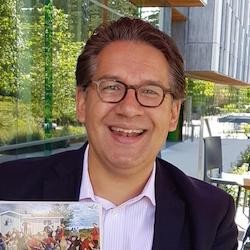Complex Sovereignties: Theories and Practices of Indigenous-Self Determination in Settler States and the International System

About the Project
I am working with co-researcher Associate Professor Sheryl Lightfoot at the University of British Columbia (Anishinaabe, a citizen of the Lake Superior Band of Ojibwe). Sheryl is Canada Research Chair in Global Indigenous Rights and Politics and the North American representative and deputy chair of the United Nations Expert Mechanism on the Rights of Indigenous Peoples (https://fnis.arts.ubc.ca/persons/sheryl-lightfoot/).
Together we have been working on this Insight Grant since 2017.
Settler state governments have long claimed absolute political sovereignty over Indigenous lands, institutions, and peoples, claims which have always been subject to contestation by Indigenous Peoples (IPs). This project seeks to better conceptualize IPs' rights to self-determination in new, creative and innovative ways, which fully respect Indigenous laws, traditions, and nation-to-nation relationships with settler governments. Scholarly debates in the Indigenous rights, politics, and law literatures focus attention on whether the UN Declaration on the Rights of Indigenous Peoples advances Indigenous rights, or constitutes a form of assimilation and subjugation. This project sheds light on how Indigenous political actors in Canada, Aotearoa New Zealand, USA, and Nordic countries, are advancing self-determination in practice with, within, and across the borders of states, while navigating the international system, in assertive, maximal, innovative, and peaceful ways.
We explore ways in which the UNDRIP has articulated self-determination as different, as a unique and relational form, requiring negotiation. While UNDRIP seems to offer a novel view of Indigenous self-determination, it also foregrounds new and evolving global understandings of self-determination, decoupling it from sovereignty and territoriality, with salient practical implications that move beyond IPs to impact wider issues of global governance. We investigate this global change proposition, and its requisite political negotiations on multiple levels.
Our research aims to inform both the theoretical development of self-determination and policy decisions, building on literature documenting the history of Indigenous diplomacy and trade. We also problematize methods by which states are resisting or acceding to these efforts, given the overall history of settler state suppression of Indigenous rights. This research program recognizes the challenges faced by IPs when seeking to articulate their interests within a settler colonial context. We explore distinct, but overlapping and complementary, forms of self-determining practice, including passports, independent trade or diplomatic missions, involvement in elements of state external sovereignty, treaty relations, territorial and economic self-determination, pooled sovereignty, global organizing beyond the state, and the rebuilding and assertion of nationhood.
We use recognized Indigenous methodologies, and proceed from a strong basis of community stakeholder support. This includes working closely with a team of Indigenous and other collaborators in Canada, Aotearoa New Zealand, and elsewhere. A clear, comparative, and systematized discussion of Indigenous self-determination goals and practices globally may help policy makers to better conceptualize how to support self-determination efforts as a means of affirming mutually respectful, nation-to-nation relationships, as articulated in UNDRIP.
We have a number of deliverables from the grant which you can find at our project website as well as my website below.
ORCID 0000-0003-1440-7680
Website and blog: www.davidbmacdonald.com
SSHRC project website: www.complexsovereignties.ca